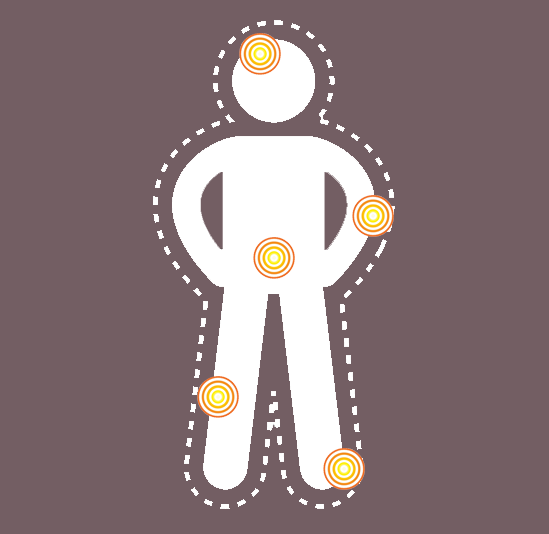What is Gout?
Gout is an acute form of inflammatory arthritis that occurs most often, but by no means exclusively, in people who are overweight and/or indulge regularly in rich foods and alcohol. It typically attacks the smaller joints of the feet and hands, especially the big toe.
Symptoms of gout
Gout usually affects toes, ankles, knees and fingers, although any joint can be affected. Signs of gout include severe pain, swelling, redness and/or tenderness in one or more joints.
Unlike most other forms of arthritis, gout overwhelmingly affects men.
Acute gout symptoms usually go away within three to ten days and the next attack may not occur for months or even years, if at all.
However, if you fail to address this illness, you may be subjected to more gout attacks. The more gout flare-ups you experience, the more severe and longer they will become.
Why do I have gout?
Essentially, gout occurs when the metabolic process that controls the amount of uric acid in your blood breaks down.
- Genetic defects can play a minor role in the development of this disease by causing elevated levels of uric acid.
- However, gout usually develops because of certain risk factors, such as unhealthy lifestyle habits and medical conditions.
- Obesity, high blood pressure and diabetes can all increase your chances of getting gout.
- Eating foods that contribute to a build up of uric acid such as red meat, offal and seafood, and drinking too much alcohol will also increase your risk of gout.
How is gout normally treated?
The current standard medical treatment for gout flare-ups is with anti-inflammatory drugs or medications such as steroids to lower uric acid levels. However, many people are unable to tolerate the unpleasant side effects.
How can Foodwise help?
Is gout an issue for you? Foodwise can help.
Anti-inflammatory pain medications and uric acid lowering drugs are not your only options.
We have all the nutritional information and dietary advice to help manage gout and bring lasting relief from painful flare-ups.
Join nowHow does healthy nutrition help treat Gout naturally?
Conventional medicine treats and relieves gout with drugs and painkillers, but there are natural ways to manage this agonizing condition effectively. In concept, the nutritional approach does not differ too much from the standard medical approach – both attempt to reduce inflammation in the body, just in different ways.
Fighting Inflammation is the key
Many people don't realize how much nutrition can increase or reduce the pain of gout. Because gout is an inflammatory condition, the most effective and logical approach is to adopt dietary and lifestyle measure that fight inflammation. The medical approach focuses on ibuprofen and other anti-inflammatory medications, whereas the nutritional approach focuses eating anti-inflammatory foods and avoiding triggers.
According to medical data, there is a high prevalence of metabolic syndrome among gout sufferers. Metabolic syndrome is a condition characterized by central obesity, hypertension, and disturbed glucose and insulin metabolism. Excess body weight can exacerbate gout by putting more pressure on the joints. This further irritates your already sensitive nerve endings. It's not surprising that overweight gout patients are more prone to experience more painful and intense flare-ups.
An effective approach to managing gout includes:
- a low-purine, anti-inflammatory diet
- weight management
- drinking plenty of fluids
- avoiding alcohol
- correcting nutritional deficiencies
- the appropriate use of natural supplements and home remedies.

